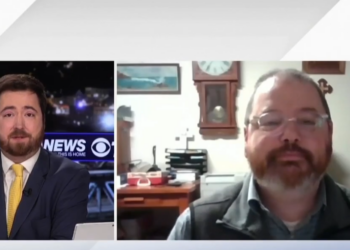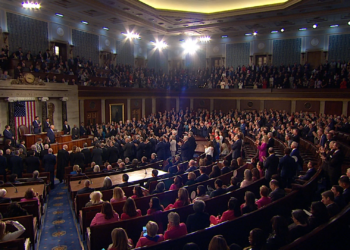By Brendan Scanland
WASHINGTON, D.C. — Following U.S. strikes on Iranian nuclear sites last weekend, Iran threatened to shut down the Strait of Hormuz—a vital shipping lane that ferries nearly a quarter of the world’s oil supply.
Oil prices briefly spiked to a five-month high during the weekend’s tensions but stabilized by Tuesday morning as Iran appeared to pull back from its threat.
“It’s got a very significant volume capacity,” said David Argyle, CEO of REalloys and an expert in critical material supply chains. “If Iran closed the strait, you’d affect all of their regional countries—and some of those countries are not big supporters of the ayatollah in Iran. So it will escalate into regional-country conflict.”
By Tuesday, oil prices had largely returned to where they were before Israel launched a targeted attack on Iran earlier this month. Argyle noted that countries like India, China and Iran’s neighbors would take the biggest hit if oil stops flowing through the strait and added that the U.S. has a safety valve to ease any potential disruption.
“Pump more oil in the United States, process more oil in the United States, have the Saudis pump more oil,” Argyle said. “That mitigates any disruption that Iran might do. Iran doesn’t have a lot of friends.”
Republican lawmakers say that President Trump’s energy policies have shielded the U.S. from a more severe fallout.
“The last administration declared war on energy and tried to take us to a nation dependent on the oil of others,” said Rep. Jack Bergman (R-Mich.). “We now can see the magnitude of the failure of the Biden administration for its war on energy from day one of taking office.”
For now, a total shutdown of the Strait of Hormuz appears unlikely, given the ceasefire between Israel and Iran- albeit a fragile one.
“I think it’s going to be chest beating, right, a little havoc. And you haven’t seen a big escalation in oil prices,” Argyle said.
Beyond energy markets, the world is closely watching for intel on Saturday’s B-2 strikes. New reports suggest the U.S. attacks may not have destroyed core components of Iran’s nuclear infrastructure, possibly setting back the program by only months instead of years.
“If the press reporting about the impact of last weekend’s strikes in Iran is true—and I cannot confirm them—then that might be the reason why the administration postponed our classified briefing today at the very last minute and deprived senators of their right to know what’s happening,” said Senate Minority Leader Chuck Schumer (D-N.Y.) on Tuesday. “So I ask again, what is the administration hiding? It’s time for answers.”
“Since then, we’ve collected additional intelligence. We’ve also spoken to people who have seen the site. The site is obliterated, and we think everything nuclear is down there—they didn’t take it out,” said President Trump while at the NATO Summit in The Hague, Netherlands.
The classified briefing for all senators was postponed until Thursday. The House is expected to receive a briefing on Friday.









